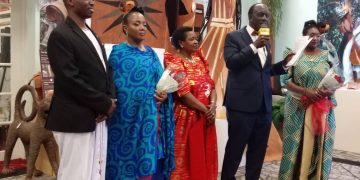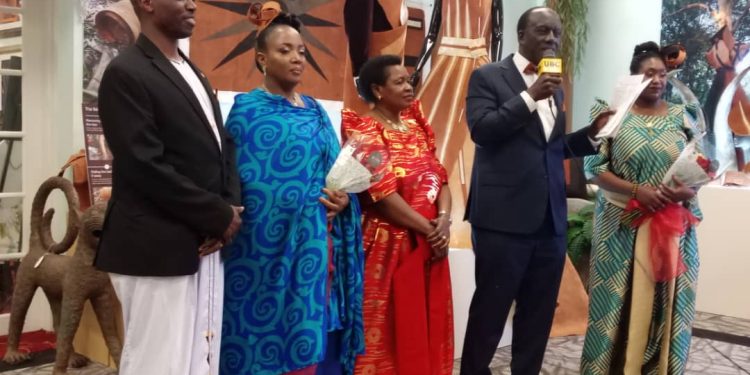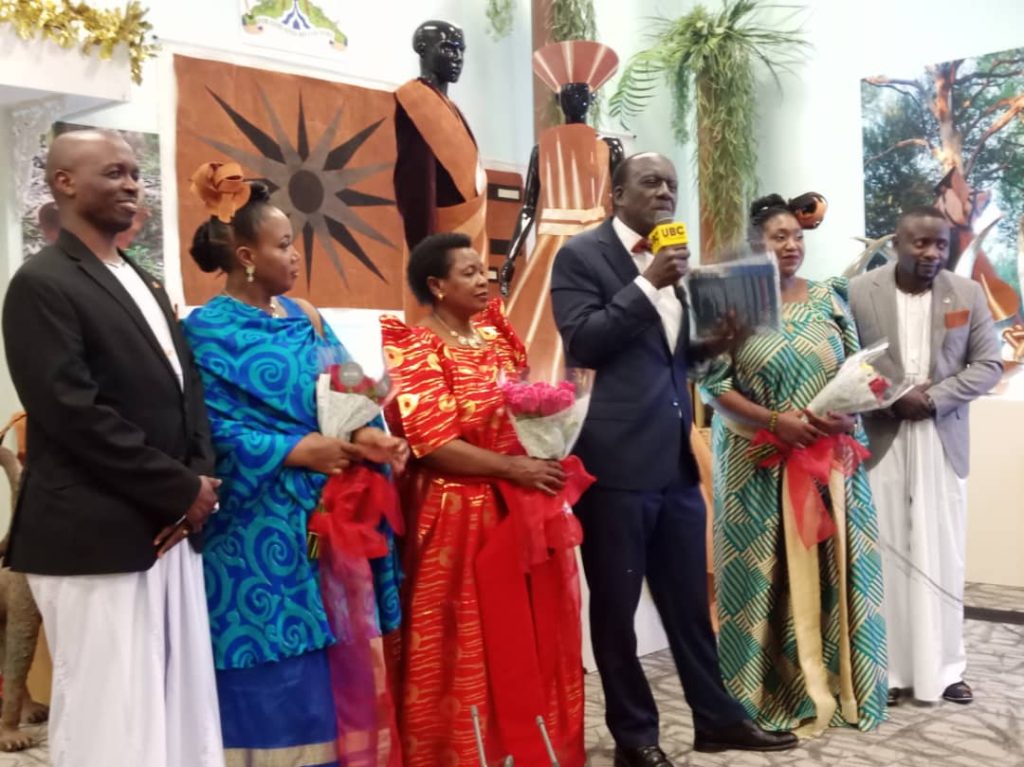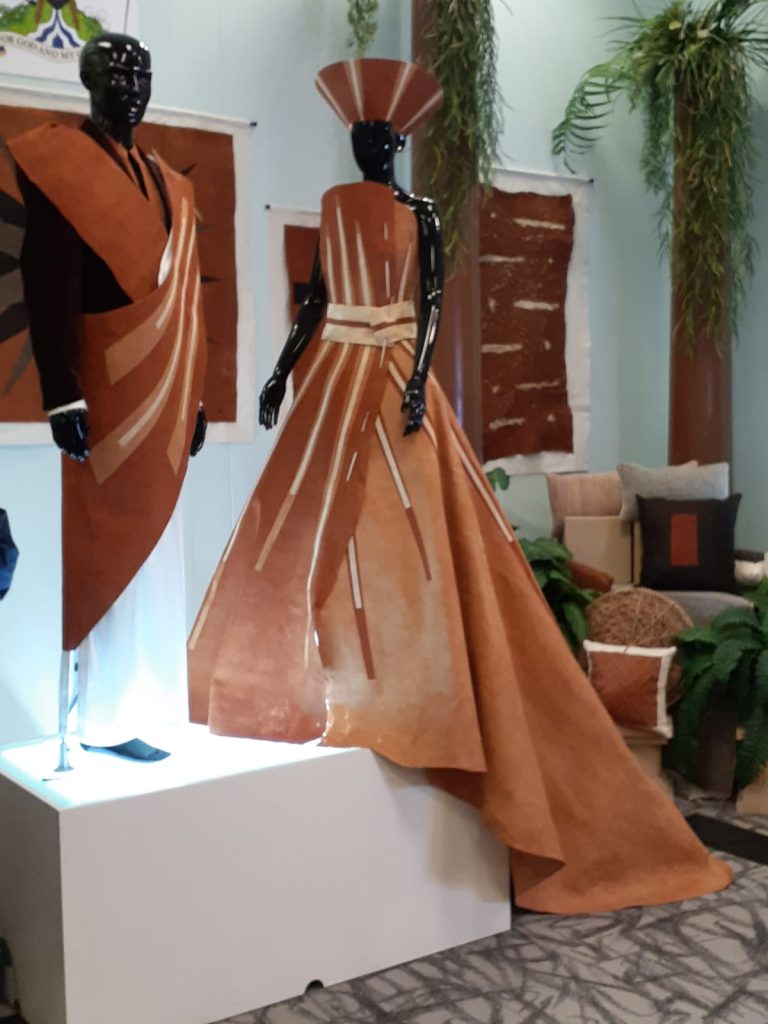The Uganda Embassy in Washington, DC, in conjunction with the African Textile Museum in Atlanta, Georgia, on February 26th 2022, held an event to showcase Uganda’s cultural heritage to recognize Black History Month, commemorated during the month of February 2022.
The event, dubbed Barkcloth to the Roots which took place at the African Textile Museum situated in the New Black Wall Street Market in Stonecrest, a suburb of Atlanta, put a spotlight on the Uganda Barkcloth as the oldest known African textile.
In 2005, the United Nations Educational Scientific and Cultural Organization (UNESCO), declared it a “masterpiece of Oral and Intangible Cultural Heritage” and in 2008 it was added to the UNESCO World Heritage list.
The Ankole long-horn Cow is one of the oldest indigenous cattle breed, found only in the Great Lakes Region particularly the Western and part of Central Uganda cattle corridor, whose distinctive horns can measure up to 8 feet in length.
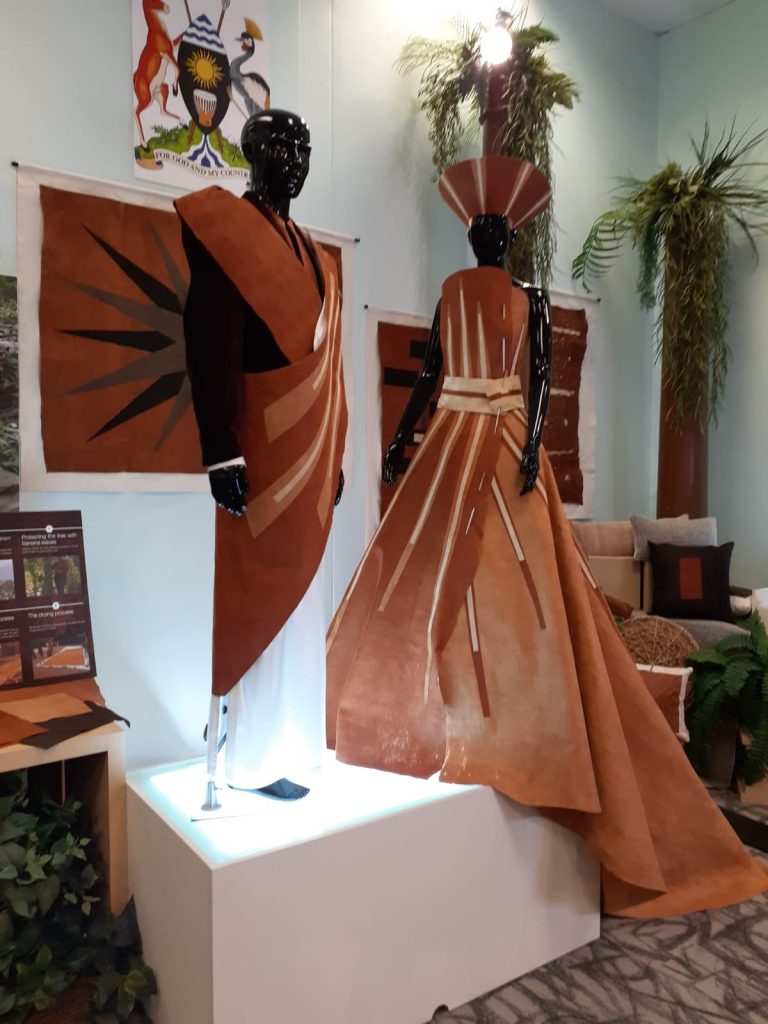
The event, which was graced by members of Atlanta high society, celebrities and government officials was recognized as a major step in bridging the gap between Americans of African Descent and Africa, both in the Diaspora and on the African continent.
Addressing the guests who attended the reception to mark the launch of the exhibition, the proprietor of the Museum, Ms. Ahneva Hilson, said that the African Textile Museum pays tribute to Africa as the birthplace of fashion “the African Textile Museum was established in 2020 to curate and preserve African textile history. Its purpose is to share the work of present-day African artisans, scholars and creative designers not only in moving the fashion industry forward but also in playing a key role in conservation and sustainability programs.”
She recognized and hailed the Government of Uganda as the first African country to commission and donate special Heritage items specifically for the Museum.
“Culture is often the key that opens the door to doing business” she said.
“There has been a yawning gap between the cultures of the Africans and Americans of African descent, despite the deep cultural heritage that they share. Recognizing this important part of our joint heritage is a major step in the direction of Bridging the Gap and creating an enabling environment of doing business in Africa.
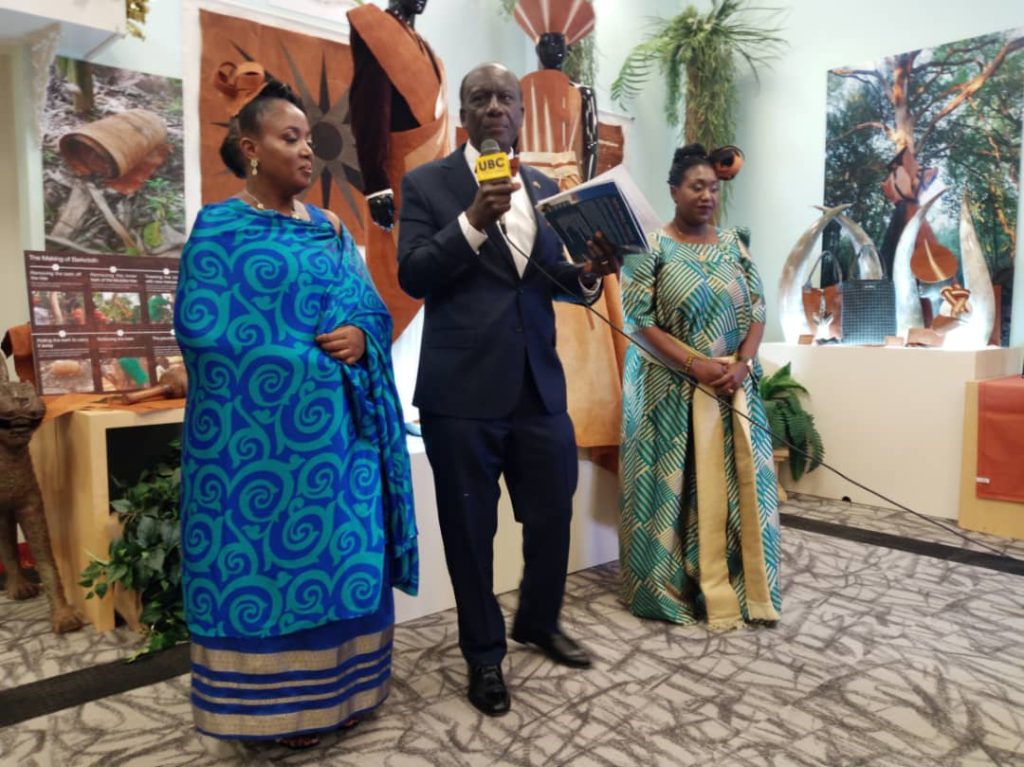
The Uganda Embassy commissioned the two Barkcloth installations donated to the museum from London-based fashion designer Jose Hendo, a Ugandan-born British national who has honed and specialized the craft of using Barkcloth in renewable and recyclable materials for over 20 years, and has exhibited various barkcloth designs and installations around the world.
In addition, the Museum received a donation from the Embassy of two extra-large pairs of polished Ankole Cowhorn.
In an interview by the Uganda Broadcasting Corporation held on the sidelines of the event, Uganda’s Ambassador to the United States, H.E. Mull Katende explained the rationale behind the selection of the two products to be installed in the Museum, “Barkcloth production is a highly skilled craft passed down through many generations, which has dwindled over recent decades due to economic and political pressures” he said.
“The process of making Barkcloth existed before weaving was invented and has been passed down from generation to generation for over 700 years. This makes it one of the oldest natural textiles in history and one whose stamp of ownership we must clearly express”.
Responding to a question about why the cowhorns were important, Katende said “we often discard them as waste in the slaughter of cows, and yet Ankole long cow-horn is making its mark as a clean and renewable alternative to plastic, in fashion accessories, and in the making of crafts and household materials”.
Ankole cowhorn can be a high-value-added material with multiple applications such as cutlery, eyewear, buttons, ornaments and even cosmetics. Cow horn is an eco-friendly, organic and bio-degradable natural material that can do what plastic does and more.
“These two unique products will take their rightful places among other African fabrics and items that are expected to be featured at the African Textile Museum this year”, he said.
Speaking virtually from London, Ms. Hendo expressed gratitude to the Uganda Government, through the Embassy of Uganda in Washington, DC for putting an important spotlight on what she termed “a brewing crisis for African creatives”.
She informed the guests that due to the growing pressure to reduce the environmental impact of the fashion industry, there was an increasing demand for natural materials or fibers as designers embrace environmentally sustainable raw materials and promote traditional craftsmanship.
“As a result, our cultural intellectual property and heritage is being infringed upon as the fashion industry attempts to find alternative textiles”, she said.
Ms. Hendo added that since 1990, Uganda has lost nearly 8 million acres of forest and the deforestation is having a devastating effect on the livelihood of bark-cloth manufacturers.
“These merchants and tailors rely on the bark of Mutuba trees to make their products, including clothes, accessories and home furnishings. The exhibition will put a spotlight on this culture in crisis and garner international support for the preservation of this heritage”, she said.
The City of Atlanta, Georgia in the USA is considered the place where Culture and Commerce meet.
It has long been considered the “Cultural Mecca” of the United States, due to its rich history and consideration as the birthplace of the late Martin Luther King Jr. Over time it has become the hub for black hair and beauty and the fashion industry, hip-hop music and a budding film and television industry.
Atlanta is considered the New Hollywood of the film & television industry. The exhibit of the incredible Barkcloth and the unique features of the Ankole horn as sources of sustainable, original materials for the film and fashion industry is a great opportunity.
The materials will be introduced to costume designers and the fashion industry alike to promote their use.
The highlight of the event was the reading of a Proclamation Mayor George Turner of the city of Stonecrest, declaring February 26th Bark to the Roots Day, in honor of the unique Barkcloth and Cowhorn heritage that the people of Uganda shared with the people of Stonecrest, Georgia.
